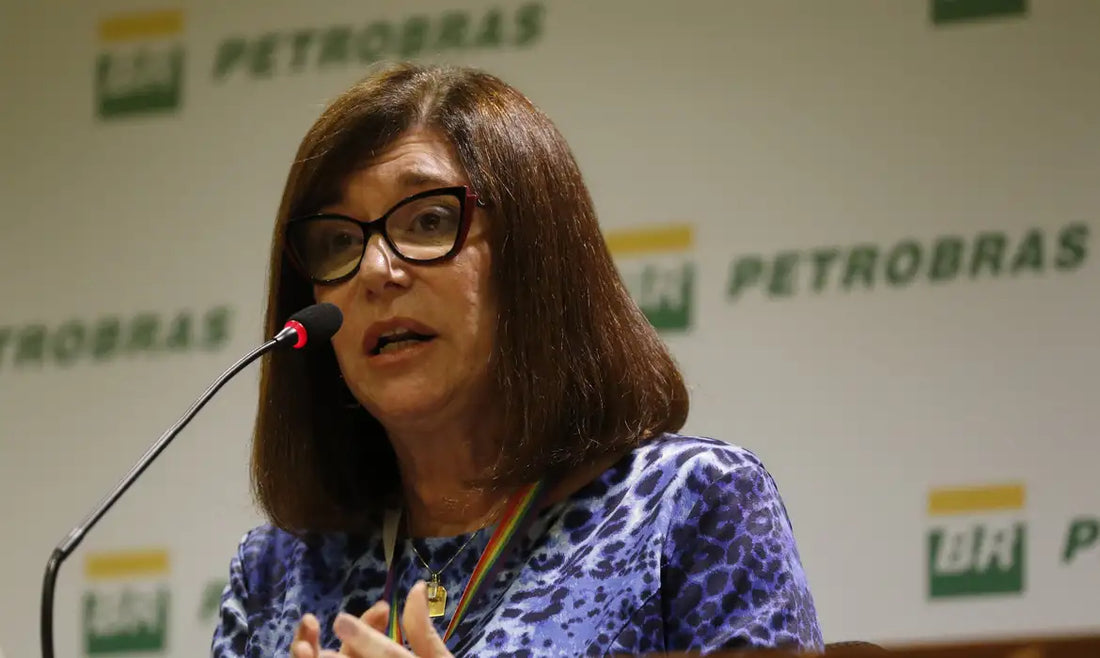
Impact of Magda Chambriard's statements on Petrobras
Magda Chambriard's first statement as CEO of Petrobras was eagerly awaited by the financial market. The context of this transition of command at the Brazilian state-owned company involved an exchange considered traumatic, which increased even more attention to the words of the new leader. The statements made by Magda late Monday afternoon brought relief to investors, reflecting positively on the company's shares.
Who is Magda Chambriard?
Magda Chambriard is a Petrobras veteran, having worked at the company for two decades. His experience covers several areas of the company, which gives him a deep understanding of Petrobras' operations and challenges. As the new CEO, Magda takes on the responsibility of balancing the interests of majority and minority shareholders, maintaining the company's profitability while meeting government demands for more investment.
First impressions of the market
Magda emphasized that Petrobras must continue to be profitable and that fuel prices will follow a “Brazilian pricing” policy, avoiding international market volatility. This approach is seen as a continuation of the previous administration, which has brought a feeling of stability to investors.
Important points:
- Maintaining the Brazilian pricing policy aims to protect Petrobras from international fluctuations.
- The continuity in the distribution of dividends is subject to the company's profitability.
Challenges and future strategies
Magda highlighted the importance of exploring new frontiers, such as the Equatorial Margin, and continuing to invest in the pre-salt, which is expected to reach peak production in 2030. Furthermore, she mentioned the intention to expand in the fertilizer and refining segment, as long as are profitable. These investments are essential for Petrobras' long-term sustainability.
- The Equatorial Margin represents a new exploratory frontier with great potential for reserves.
- The development of the fertilizer market can diversify and strengthen Petrobras' position.
Analyst Reactions
Levante Corp positively evaluated Magda's first statements, highlighting that there were no major changes in the company's direction. The expectation is that Petrobras will continue to distribute high dividends, maintaining its attractiveness for investors.
- Continuity in the dividend policy is crucial to maintain investor confidence.
- Magda's strategy suggests a conservative approach, focused on profitability.
Perspectives of the big banks
BTG Pactual and Bradesco BBI reinforced the view that the new CEO will follow a strategy similar to that of previous years, with an emphasis on economic coherence. BTG highlighted the importance of monitoring new topics, such as increased investments in the shipping and fertilizer industries, which could impact Petrobras' return on invested capital (ROIC).
- The shipping industry and fertilizers represent new areas of investment with potential impact on ROIC.
- The energy transition will continue as part of the company's strategy, balancing exploration and sustainability.
The recent change in leadership at Petrobras, led by President Lula, has been widely seen as a political decision rather than a purely technical choice. This change, represented by the appointment of Magda Chambriard as CEO, generates several implications for the state-owned company's shareholders. Let's explore some of these possible consequences.
Impact on investments and dividends
The appointment of Magda Chambriard signals a potential change in Petrobras' investment strategy. Although Magda emphasized that the company will continue to be profitable and pay out dividends, political pressure for more investment could lead to a redirection of the company's resources. The focus on areas such as refining and fertilizer production, although important for the Brazilian economy, may result in a less efficient capital allocation from a strictly financial point of view.
- How could the pressure for more investments impact Petrobras' profitability? Political pressure for more investment can divert resources from high-profit areas, such as oil exploration and production, to less profitable sectors, thus reducing the company's profit margin and, consequently, the dividends distributed to shareholders.
Fuel price policy
Magda Chambriard stated that fuel price policy will follow the "Brazilian" model, protecting consumers from international fluctuations. This approach may be socially well-regarded, but it presents a financial challenge. Keeping fuel prices below international prices could put pressure on Petrobras' profit margins.
- What is the potential impact of maintaining an internalized fuel pricing policy? Maintaining fuel prices below the international market could result in a loss of revenue and profit margin for Petrobras, negatively impacting shareholder returns.
Exploration and production
Magda highlighted the importance of exploring new frontiers, such as the Equatorial Margin, and maintaining peak Pre-Salt production until 2030. Exploring new reserves is essential for Petrobras' long-term sustainability, but faces regulatory and environmental barriers that can delay these projects.
- What are the challenges and opportunities in exploring new frontiers like the Equatorial Margin? Opportunities include increasing reserves and production, ensuring the long-term sustainability of the company. The challenges involve regulatory and environmental barriers and the need for large investments, which can take time to convert into revenue.
Corporate governance and risk perception
The change of command, motivated by political reasons, can increase the perception of risk among investors. Consistency and predictability are crucial to the market, and changes in leadership can create uncertainty about the company's future direction.
- How does the change in leadership impact Petrobras' risk perception and corporate governance? Political change in leadership can increase the perception of risk among investors, who are concerned about possible changes in governance strategies and dividend distribution policy. Stability and predictability are key factors in maintaining shareholder confidence.
Concluding
Magda Chambriard's first statements brought relief to the market, suggesting continuity in Petrobras' strategy. Its emphasis on profitability, maintaining dividends and expanding into new areas such as the Equatorial Margin and fertilizers demonstrate a commitment to the company's long-term sustainability. The positive response from analysts and investors reflects confidence in Magda's ability to lead Petrobras in a period of challenges and opportunities.


















































